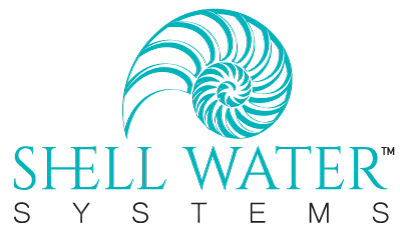Have you been noticing some issues while you are washing your dishes, doing the laundry, taking a shower, or using any appliance where water is involved? Finding your sinks riddled with stains and having dry and itchy skin might indicate that you have a hard water problem.
If this is indeed the case, you might need a water softener. Water softening systems are home water treatment systems that are designed to help you increase the lifespan of your plumbing, your clothes and improve the overall water quality by “softening” the water.
Water softeners achieve this by taking out the excess calcium and magnesium ions using an exchange with sodium or potassium ions. These salt-based water softener systems use the ion exchange process to remove the hardness-causing minerals from the water. Once the exchange takes place, the water softener will regenerate and flush the system of excess ions until it rechanges with new sodium ions.
Salt-free water conditioners could be a better alternative to salt-based systems if the hard water problem is not too severe. Salt-based systems can use up to 25 gallons every 10-12 days. It is important to determine your water hardness before you decide between the two types of water treatment systems.
5 Signs You Need A Water Softener
Let’s take a look at the signs you need a water softener.
1. You are noticing scale buildup on your appliances
If you notice any scale buildup on appliances that use water, you likely have hard water. Mineral deposits can start forming on tea kettles, coffee pots, and sinks. These are only visible deposits. Limescale buildup also accumulates within the pipes. Gradually, the limescale can start clogging plumbing so much that the entire system might become inefficient at passing water.
The limescale buildup is a hard and chalky substance made of calcium and magnesium bicarbonate. Water softeners reduce the buildup by removing these dissolved minerals from the water before the water flows through your plumbing.
2. Your skin is dry and itchy
Another sign that you need a water softener is dry and itchy skin. Hard water can cause dryness and itchiness because there is so much calcium and magnesium in the water. These minerals make it more challenging for the water on your skin to nourish it and just cause your skin to become dry.
Minerals in the water can also settle on your skin. If your soap does not dissolve well in hard water, the soap cannot remove the minerals from your skin, leaving behind residue. The leftover mineral on your skin can make it start feeling irritated, dry, and rough. Hard water also blocks pores and leads to inflammation and blackheads.
Water softeners will remove the minerals from the water and leave your skin feeling more nourished.
3. Your clothes are becoming gray and faded
Have you noticed your laundry becoming slightly faded the more you wash it? This is also a sign of hard water. Your clothes and bedsheets might feel scratchy or could be difficult to wash because there is so much excess mineral in the water.
While you can try using sodium tripolyphosphate and adding it to your wash to reduce the problem, the best way to solve this issue is using a water softener that removes the minerals entirely.
4. There are strange stains on the sinks and bathtubs
If you see any stains left behind from mineral residue in your sinks and the bathtubs, it is another sign that you need a water softener. These stains form when the tap water containing hardness-causing minerals evaporates and leaves the calcium and magnesium behind. If you have noticed plaster-like deposits in the bathtub and faucets, you can use a few methods to remove them.
Using a cloth dipped in vinegar to wipe around the base can remove the mineral deposits. You can also fill up the bathtub with water and pour in a cup of bleach with dishwasher detergent to let it soak and then flush the water.
A water softener would provide you with a better solution because it will permanently remove the stains and keep them gone for good.
5. Your plumbing needs constant repairs
Steel pipes and hard water is a very bad combination. The limescale buildup can cause significant damage to the lines, and the water flow will be significantly reduced. Copper and PVC pipes are more resilient to hard water, but the limescale buildup can still restrict the water pressure.
If you find yourself frequently calling a plumber to resolve plumbing problems caused by the extra wear and tear on your pipes, it might be better to install a whole house water softener to remove the problem once and for all.
Get The Best Whole House Water Softener For Hard Water
Depending on how severe the hard water problem is in your area, the best hard water filter system for you could be a salt-based system or a salt-free water conditioner.
Salt-based water softeners are highly effective in removing hardness-causing minerals from the water supply. However, these systems’ running costs can accumulate over time.
Saltless water conditioners can provide you with a more cost-effective solution for your hard water problems. These systems do not require maintenance costs, and they do not use electricity to remove the hardness-causing minerals from the water supply.
If you are concerned about the hard water problem in your water supply and need better access to safe water at home, feel free to contact us. We can guide you to the most suitable solution for your hard water problems from our wide range of water treatment solutions at Shell Water Systems.
